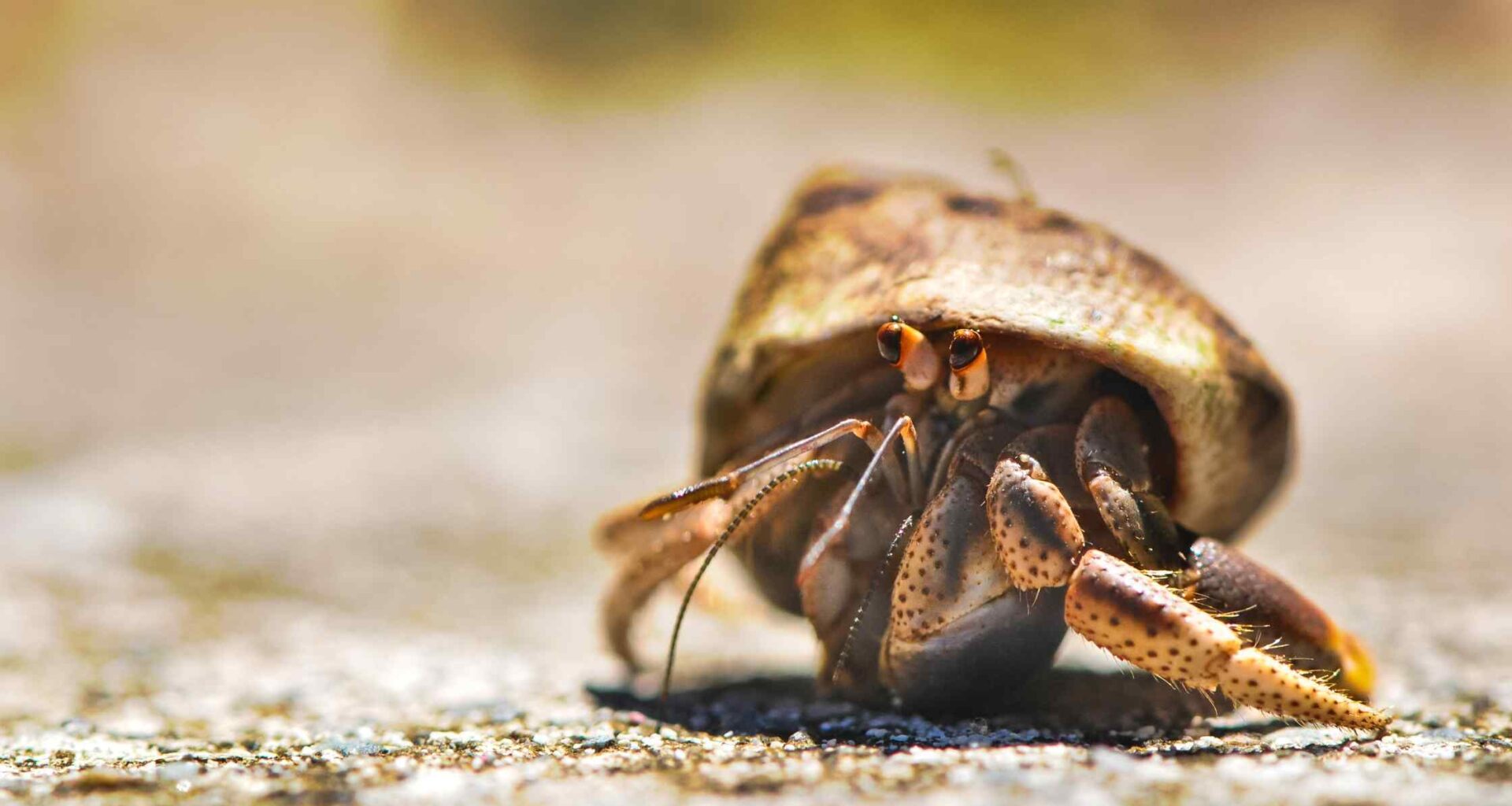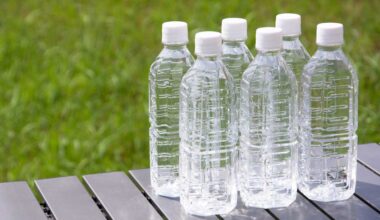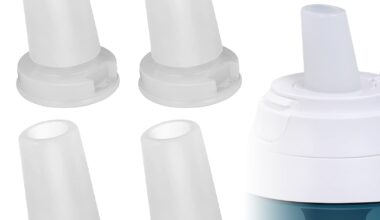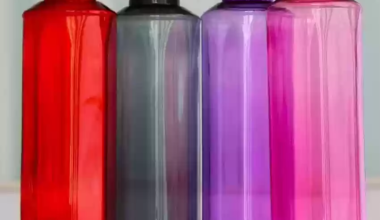You’ve seen them scuttling around in their cute little shells, and you may have even had one as a pet. But have you ever wondered, “Can hermit crabs drink bottled water?” Well, today is your lucky day because we’re about to dive into this fascinating topic!
“Hermit crabs, nature’s most intriguing little homebodies!”
These tiny critters have a lot more to them than meets the eye. They require intricate care, which unsurprisingly includes their hydration needs. So, let’s talk about hermit crabs and their relationship with bottled water, shall we?
The Fascinating World of Hermit Crabs
Did you know that hermit crabs are quite the little connoisseurs when it comes to their beverage of choice? Yes, indeed! These fascinating creatures are surprisingly discerning about what they drink.
The Hydration Habits of Hermit Crabs
Now, you might be wondering, “Can hermit crabs drink bottled water?” It’s a valid question, after all, in a world where we’re constantly seeking to provide the best possible care for our pet companions.
Can these adorable little crustaceans enjoy a sip or two of Evian or Fiji water? Well, let’s dive in!
The Short Answer
Yes, hermit crabs can drink bottled water. However, there’s a twist. They’re not just happy with any bottled water. They prefer dechlorinated water, which is free from harmful chemicals often found in tap or even some types of bottled water.
The Importance of Dechlorinated Water
Chlorine and chloramine, commonly found in tap water, can be harmful to hermit crabs. These substances can damage their delicate gills and harm their overall health. Therefore, it’s crucial to provide your pet with dechlorinated water.
| Water Type | Suitable for Hermit Crabs? |
|---|---|
| Tap Water | No (unless dechlorinated) |
| Mineral Water | No |
| Distilled Water | Yes |
| Dechlorinated Bottled Water | Yes |
Keep your hermit crab happy and hydrated by giving them the right kind of water. Remember, a well-hydrated hermit crab is a happy hermit crab. Cheers to your pet’s health!
Exploring the Myth: Can Hermit Crabs Drink Bottled Water?
Alright, folks, let’s dive right into the nitty-gr this peculiaritty of question – can hermit crabs sip on that good old bottled water we humans relish? Well, our cute little crustacean buddies have some peculiar drinking habits, and their interaction with bottled water might surprise you. So, let’s get our feet (and claws) wet!
First things first, hermit crabs are saltwater creatures. This means their bodies are uniquely adapted to survive in a saline environment. But, here’s the kicker – just because they live in salty water, doesn’t mean they can only drink that. Interesting, right?
Hermit crabs are the bartenders of the animal kingdom, they like a mixed drink!
Hermit crabs need a mix of both freshwater and saltwater. Note the emphasis on ‘fresh’ here. That’s where our bottled water enters the stage. But, not so fast. Bottled water can be tap water, spring water, or mineral water, and oh boy, hermit crabs are picky drinkers.
The Verdict: Bottled Water and Hermit Crabs
So, we’ve reached the moment of truth. Can hermit crabs really drink bottled water? Well, the answer is: it depends (don’t you just love those?). If your bottled water is distilled and doesn’t contain any added minerals or chemicals, it’s a big thumbs up. On the other hand, if the water has been treated or has added minerals, it’s a no
Ever wonder what kind of H2O your hard-shelled buddy sips on? There’s a common myth floating around that hermit crabs can drink bottled water. But is it really a fact or just another piece of pet folklore? Let’s dive in and find out!
The Bottled Water Debate
Many people believe that because bottled water is safe for human consumption, it should be safe for our hermit friends too. After all, if it’s good enough for us, why wouldn’t it be good enough for them? The answer, however, isn’t as straightforward as you might think.
Understanding Hermit Crab Hydration
Unlike us humans, hermit crabs need more than just plain water for proper hydration. They require a balance of fresh and salt water. This is due to their natural habitat – the seashore, where they get a mix of ocean water and freshwater from rainfall.
The Trouble With Bottled Water
Bottled water may seem like the perfect solution but there’s a catch! Most bottled water lacks the essential minerals hermit crabs need. Plus, certain types of bottled water, especially distilled, are stripped of all minerals, making it unsafe for these critters.
So, What’s the Verdict?
While bottled water isn’t necessarily toxic for hermit crabs, it isn’t their drink of choice. For a happy and healthy crab, a mix of dechlorinated freshwater and ocean saltwater is the magic potion. So next time you’re about to share a sip of your Evian with your crustacean pal, remember they prefer their cocktails a little saltier!
What Do Hermit Crabs Need to Survive?
Ever wondered what it takes to keep your hermit crab happy and healthy? It’s not as simple as just plopping them into a tank and forgetting about them. These little critters have some specific needs that must be met.
Nutrition: Hermit crabs are omnivores, they love a good mix of fresh fruits, vegetables, and proteins. But remember, just like us, they appreciate variety in their diet.
Humidity: Hermit crabs are tropical creatures and they require a humid environment to survive. Maintain humidity levels of 70-80% in their tank to keep them from drying out.
Temperature: Keep the temperature of their habitat between 72 and 80 degrees Fahrenheit. Any colder or hotter could make them uncomfortable, or even lead to health issues.
Shelter: Hermit crabs are, well, hermits. They like to hide and have plenty of shells to move into as they grow. So, always ensure they have a variety of shell options.
And last, but certainly not least, Water: They need two sources of water- one fresh and one saltwater. But here’s a curveball- can they drink bottled water? Let’s dig a little deeper into that one.
Understanding the Hermit Crab Habitat
Let’s kick off the conversation with a whimsical yet factual question: Can you picture a hermit crab sipping on a tiny bottle of Evian or Fiji? It might not be that absurd! Hermit crabs do need freshwater, and bottled water can be a viable option. However, understanding their natural habitat is key to providing the right kind of water.
Hermit crabs, those whimsical, shell-toting critters, hail from tropical regions. Picture pristine beach sands, lush foliage, and yes, fresh, clean water. They are not picky drinkers per se, but they do have a strong preference for natural, dechlorinated water.
Why so, you ask? Well, it’s simple biology. Hermit crabs breathe through gills and need moisture to do so. Water in their habitat helps maintain the necessary humidity. But it’s not just any H2O that’ll do the trick. Tap water often contains chlorine, which can be harmful to these tiny creatures.
Pro Tip: If you’re using tap water for your hermit crab, ensure it’s dechlorinated. You can achieve this by letting the water stand for 24 hours or using a dechlorinator from a pet store.
So, back to our bottled water question. Yes, hermit crabs can drink bottled water, provided it doesn’t contain any added salts or minerals. Distilled water is an excellent choice, or you could go for bottled spring water. It’s all about mimicking their natural, salty habitat sans the harmful substances.
In a nutshell, your hermit crab’s water should be safe, clean, and chlorine-free. A bit like what you’d want for yourself, right? So next time you’re sipping on your bottled water, remember your little hermit buddy might appreciate a sip too!
The Importance of Water for Hermit Crabs
Picture this: a hermit crab sipping on a miniature bottle of Evian, perched high atop a crystal-clear beach pebble. Sounds pretty cute, right? But the question we’re tackling today is: can hermit crabs actually drink bottled water?
Well, hold onto your shells, because the answer is: absolutely, they can! In fact, these little crustaceans are quite the connoisseurs of H2O. They need fresh water to drink, just like us humans, and bottled water is a perfect choice. It’s free of harmful chemicals and contaminants, making it a safe choice for our tiny, hard-shelled pals.
Why is water so crucial for hermit crabs?
Hermit crabs depend on water for survival, just like every other living creature. They don’t just need it for hydration, but also for maintaining the right level of humidity in their little crustacean bodies. Fresh, clean water is also vital for their molting process.
So, even though a hermit crab won’t exactly be able to twist off the cap of a bottled water, it’s our job as responsible pet owners to provide them with the clean, fresh water they need to thrive.
Stay tuned as we dive a little deeper into the world of hermit crabs and water. It’s about to get a little ‘crabby’ in here!
Is Tap Water Safe for Hermit Crabs?
Ever found yourself pondering over the curious case of hermit crabs and tap water? Well, you’re not alone! This is an intriguing question that’s bubbled up in many a hermit crab enthusiast’s mind.
Should I let my hermit crab sip on some good old tap water?
The short and simple answer is – No. While tap water might appear clean and safe to us humans, it’s a whole different story for our tiny, shell-dwelling friends.
Why so, you ask? Let’s delve into the details.
The Trouble With Tap
Tap water often contains chlorine and other chemicals that are used to kill harmful bacteria. Sounds like a good thing, right? Not for hermit crabs! These substances can prove toxic for them.
Moreover, tap water may harbor trace amounts of metals and minerals that, while perfectly safe for us, can cause problems for hermit crabs.
What’s The Solution?
So, you might be wondering, “If not tap water, then what?” Well, the best way to keep your hermit crab hydrated and healthy is to provide them with dechlorinated or bottled water.
These types of water are free of the harmful substances found in tap water, making them the ideal thirst-quencher for hermit crabs.
In conclusion, while tap water is a no-go, bottled water is a definite yes for hermit crabs. So, next time you spot your little friend looking parched, you know exactly what to offer!
How to Provide Water for Your Hermit Crab
Picture this: You’ve got the perfect hermit crab habitat set up with the sand just right, the temperature ideal, and a beautiful assortment of shells for your scuttling friend to choose from. But, there’s one element you might be overlooking – water. That’s right, hermit crabs need water, too! But not just any water, let’s dive into what’s best for these tiny crustaceans.
Can hermit crabs drink bottled water?
The short answer is yes, but there’s more to it than that. While bottled water is safe for hermit crabs, it’s not necessarily the best choice for them. Hermit crabs need certain minerals in their water that bottled water often lacks. Plus, they need a separate saltwater pool for bathing. So, while tap water needs to be dechlorinated before use, it’s a bit more suitable for your crabby pal.
Preparing the Perfect Pool
Hermit crabs aren’t just about drinking water – they also love to a marine-grade salt mix to ensure it contains the necessary minerals and trace elements.
Keeping the Water Fresh
Just like humans, hermit crabs prefer their water fresh. So make sure to change the water regularly, ideally every day. Clean the water dishes during every change to prevent bacterial growth. Be vigilant about removing any food particles or waste that might contaminate the water.
Tip: If your hermit crab flips its water dish or soils it frequently, consider getting a dish with a weighted bottom or one that can be secured to the tank.
In conclusion, while bottled water can be a quick fix, providing a combination of dechlorinated tap water and salt water will make your hermit crab feel right at home. Remember, happy crab, happy life!
The Best Water Types for Your Hermit Crab’s Health
When it comes to your little armored buddy’s hydration, not all water is created equal. Believe it or not, the type of water you provide your hermit crab can significantly affect its health. It’s crucial to ensure you’re giving them the best water possible, and you might be wondering if that includes bottled water.
Tap water: It’s a no-go for hermit crabs. While it’s our go-to for hydration, it contains chlorine and other chemicals harmful to our crustacean friends.
Distilled water: Not the top choice either. It lacks the essential minerals that hermit crabs need for their shell development.
So, what about bottled water?
It may be a surprise, but bottled water isn’t the best choice either. Bottled water often lacks the necessary minerals and salts that our hermit crabs crave, and sometimes it might even contain additives that are not entirely crab-friendly.
Then what’s the best water for hermit crabs?
A combination of dechlorinated freshwater and saltwater is what your crab really craves. Both types of water serve crucial roles in a hermit crab’s life and should be provided in separate shallow dishes within their habitat.
Remember: Saltwater should mimic the ocean – not your table salt. Use a marine-grade salt mix for the best results.
Understanding the best water types for your hermit crab’s health is not just a great step towards responsible pet care, but also a fascinating dive into the unique needs of these amazing creatures. So, keep that bottled water for yourself, and let’s give our hermit buddies the hydration they truly deserve!
What Happens When Hermit Crabs Don’t Get Enough Water?
Imagine throwing a pool party, but forgetting one vital ingredient – water! It’s a similar scenario when a hermit crab doesn’t get enough H2O. Their party, aka life, just isn’t the same.
Without enough water, these adorable little crustaceans can experience a variety of symptoms. One of the most noticeable is dull, faded coloration. Simply put, their swagger isn’t quite as vibrant.
But wait, there’s more! (said in my best infomercial voice).
- Difficulty Molting: Molting is a fancy term for shedding and growing a new exoskeleton. Without adequate water, this process can become a real challenge.
- Reduced Activity Levels: A dehydrated hermit crab is a lethargic hermit crab. They’re less keen on exploring their habitat or climbing around.
- Poor Appetite: Just like us, when a hermit crab doesn’t feel its best, food is the last thing on its mind. Its appetite can significantly decrease.
Now, you might be sitting there, bottle of Evian in hand, wondering, “Can I just give them this?” Well, friend, it’s not quite that simple.
Caring for Your Hermit Crab: Tips and Tricks
Who would have thought our little hard-shelled friends would be so high maintenance? Yes, we’re talking about hermit crabs. They’re not just about beachy habitats and borrowed shells!
Feeding? Check. Comfortable environment? Check. But what’s next you ask? Water, of course! And not just any water, we’re talking bottled water. Surprised? Let’s dive in!
The Bottled Water Debate
The thought of giving your hermit crab bottled water might seem a bit “extra”. After all, these creatures are not exactly sipping from mineral water springs in the wild, right? But hold on to your shells, because things are about to get interesting.
Bottled Water: A Crabby Delight
Can hermit crabs drink bottled water? The short answer is, yes! Hermit crabs can indeed drink bottled water. They are particularly sensitive to the chemicals found in tap water, such as chlorine and heavy metals, which are harmful to them.
Choose Wisely
However, not all bottled waters are created equal. You need to ensure that the bottled water you choose is free from added minerals or electrolytes, as these can be harmful to your hermit crab.
Final Thoughts
So there you have it, folks! Keeping your hermit crab hydrated and happy involves a bit more than just a splash from the nearest tap. The bottled water is not only a safer option but could also be the key to a longer, healthier life for your tiny friend.
Who knew crab care could be so intriguing? Stay tuned for more fascinating facts and handy care tips for your hermit crab!






